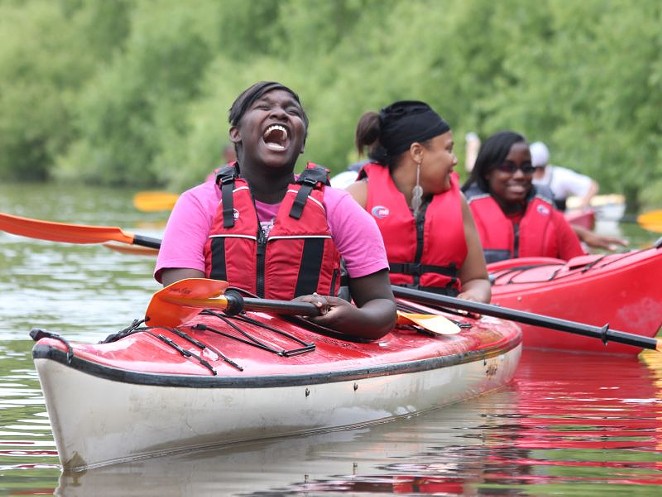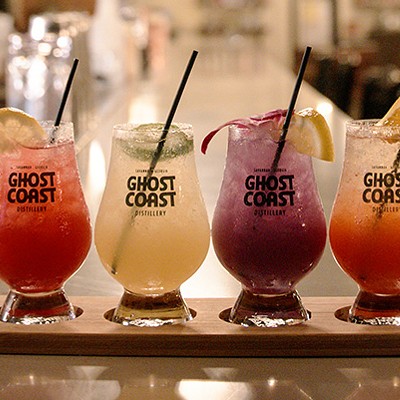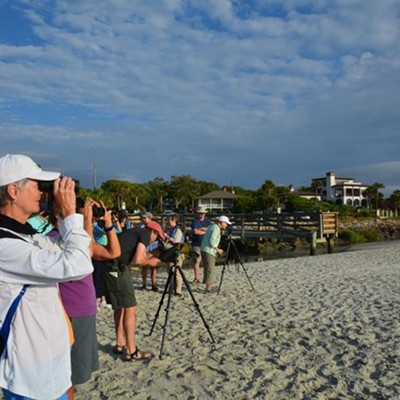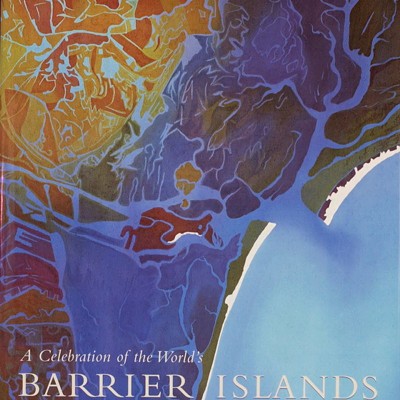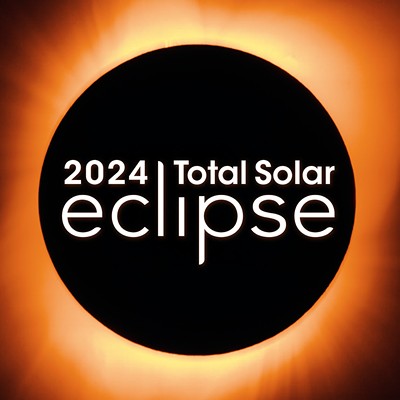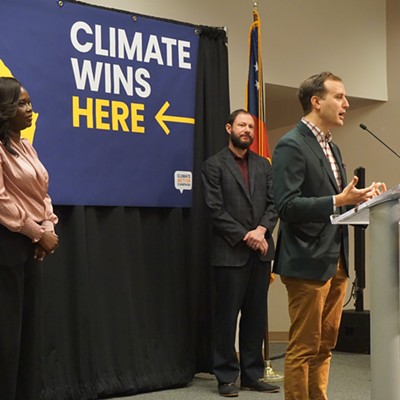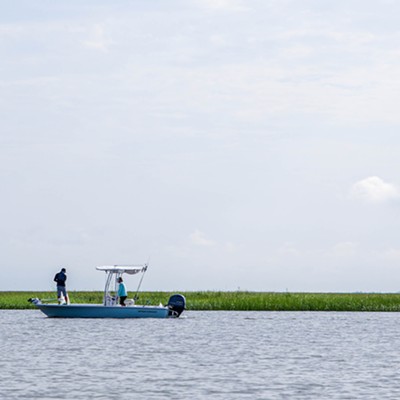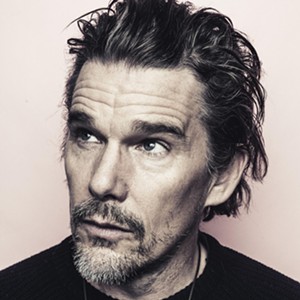SCHOOL may be out, but it’s never too soon to think about next year’s activities. When making your list, consider One Hundred Miles and their new program for high school students.
The Youth Environment Leadership Program, or YELP, is a free, yearlong program open to rising students in grades 9-12. The program uses field trips along Georgia’s coast to teach students about our coastal environment.
The deadline for applications for YELP is June 14.
We spoke with Kristy Burja, Education and Youth Programs Coordinator of one Hundred Miles, last week to learn more.
How did the idea for YELP come about?
One Hundred Miles (OHM) is committed to helping learners of all ages take action for our coast. When we first launched its education programming in 2016, our offerings were mostly geared towards adult audiences, through programs like Naturalist 101 and Nature and the Arts. As these adult education programs developed and grew, engaging youth audiences was the next logical step.
In 2019, we decided to launch a suite of youth programs, including Junior Naturalists and YELP. The idea is to not only help students learn about the coast but to ensure they have the tools to make a difference for the issues they care about.
What will the program be like?
YELP is a unique program and different from other environmental education opportunities offered in the area. Since OHM is an organization dedicated to protecting and preserving Georgia’s 100-mile coast, we wanted to engage and education youth along our entire coastline.
With this in mind, YELP will bring together high school students from different backgrounds and geographic locations across Georgia’s coastal counties for monthly field trips and workshops over the course of the 2019-2020 school. Throughout the year, we will host a series of in-depth field workshops to increase their knowledge of coastal issues, introduce them to mentors in the field, and deepen their leadership and advocacy skills. We want them to go back and share this information throughout their schools and community, and take on concrete action projects of their own.
We’ve been working hard to select a group of students that represent the diverse community of people that populate our coastline and live in both rural and urban areas across our 100 miles. We can’t wait to see the group come together and learn from each other.
Why is it so important for young adults to be involved in environmental education and protection?
The benefits of environmental education at all stages of learning are well documented. Studies show that environmental education encourages better performance on standardized tests, increased self-esteem, reduced discipline problems, increased enthusiasm for learning, and greater pride and ownership in accomplishments.
Opportunities such as YELP not only strengthen students’ love for and stewardship of coastal Georgia at a critical formative age but also expand our coalition of diverse advocates fighting for the protection and preservation of the coast. At a time when coastal Georgia is facing complex challenges, including tidal flooding, sea level rise, and rapid growth, it is more important than ever that we empower our citizens of all ages with the knowledge, tools, and motivation to take responsible actions.
How do the field trips aid learning?
We made a concerted effort to pick field trip locations along the entire coastline. We wanted students on the south end of the coast to experience the north end and vice versa. We also wanted students to experience a variety of habitats and ecosystems and balance that with a diverse set of issues that would expand their thinking. The topics we chose corresponded with the expertise of the field trip leaders that agreed to donate their time. We wanted to expose students to a variety of professionals working in science and environmental fields and provide them with mentorship opportunities that could help guide or influence their future career paths. Monthly field trips will take students behind the scenes to remote barrier islands and will give them hands-on experiences in everything from wildlife protection to sea level rise, water quality, and more.
Part of the program requires a community action plan. Why is that important?
At a time when young people all across our nation are becoming more active and engaged than ever, YELP will help students develop a long-term connection to their communities and our coast and build the foundation for a future of leadership. The community action plan will provide YELP participants with the foundation for becoming engaged and active members in their communities. It will also give them ownership of a project and the learning experience that comes with planning a project from start to finish. They’ll be able to apply what they are learning in YELP and make a tangible difference in their neighborhoods or schools, on an issue that is not only important to our coast, but to their own lives. It is our hope that this process will empower students to become community leaders and environmental stewards.

